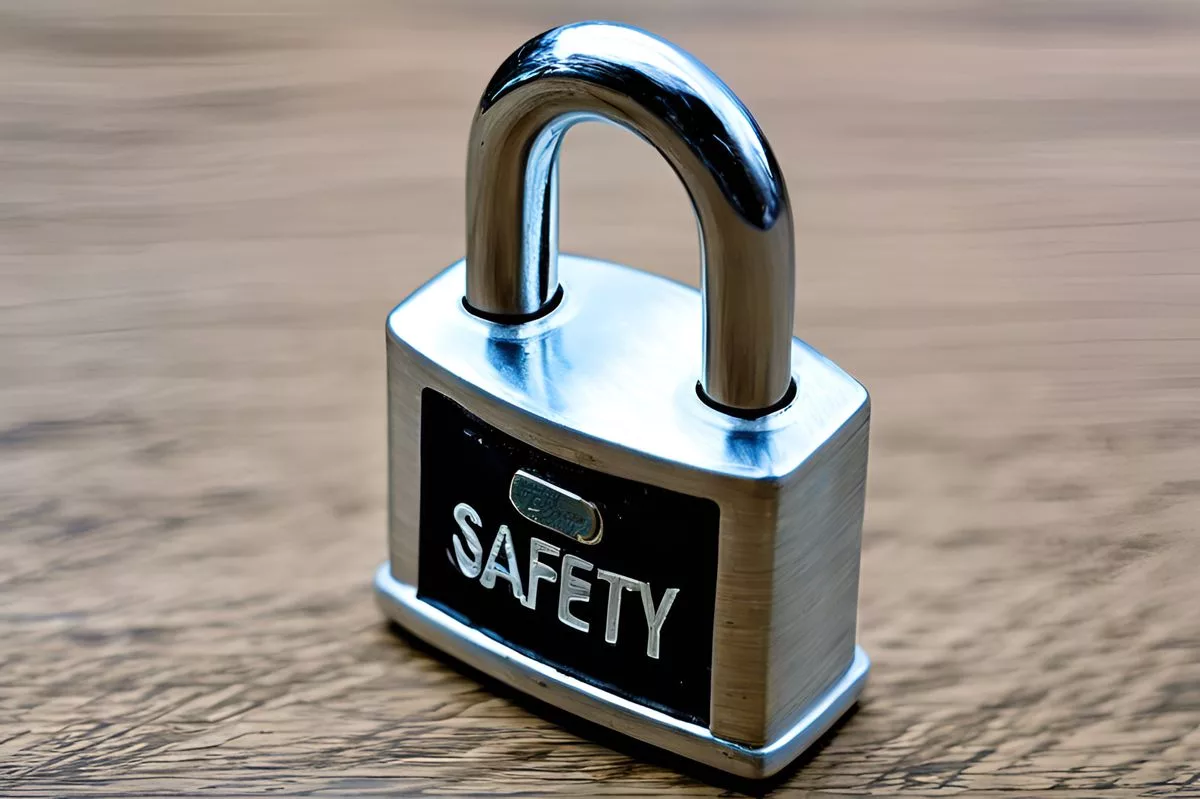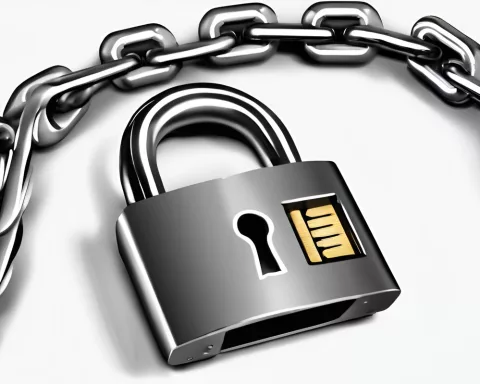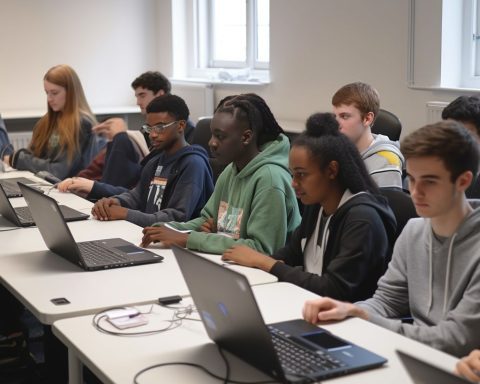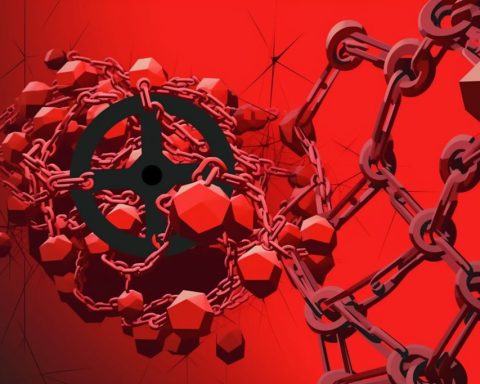As our world becomes increasingly digital, it is essential to prioritize online security and safety. Safer Internet Day aims to draw attention to emerging online risks such as cyberbullying and child exploitation. The surge in internet usage has led to an increased risk of exposure to harmful content, emphasizing the need for stronger and more effective internet safety protocols. It is vital for organizations to take steps to safeguard themselves and their clients from financial losses, reputational harm, and evolving regulatory demands.
Maintaining online security is increasingly imperative in our rapidly evolving digital world. Safer Internet Day draws attention to emerging online risks such as cyberbullying and child exploitation. The surge in internet usage has led to an increased risk of exposure to harmful content, emphasizing the need for stronger and more effective internet safety protocols. It is vital for organizations to take steps to safeguard themselves and their clients from financial losses, reputational harm, and evolving regulatory demands.
The Crux of Digital Safety
In our rapidly evolving digital world, maintaining online security is increasingly imperative. This principle was at the forefront of an address by the Deputy Minister of Communications and Digital Technologies, hon. Philly Mapulane, during the FPB Safer Internet Day celebration in Woodstock, Cape Town.
The observance of Safer Internet Day (SID) is a worldwide yearly event held on the second Tuesday of February. The aim of SID is to draw attention to emerging online risks such as cyberbullying and child exploitation. This year marked the 51st observance of the event, which kicked off in 2005 under the auspices of the European network of Safer Internet Centre’s (SICs), Insafe.
South Africa’s involvement in this global initiative is facilitated by the Film and Publication Board (FPB), a member of the International Association of Hotline Operators (INHOPE) that is in partnership with Insafe. In 2024, the FPB hosted the SID and sought to engage South Africa’s tech-inclined youth by providing essential online safety guidelines.
Embracing the Digital Landscape
The current digital landscape is tightly woven into our daily lives, opening up immense opportunities but also posing significant challenges. The internet, a complex platform utilized for a diverse range of activities from banking to social communication, requires constant vigilance to ensure safety.
Recent statistics reveal an impressive internet penetration rate in South Africa. As of January 2023, 43.5 million South Africans were active internet users, indicating a penetration rate of 78.9% among the total population of 62 million. This substantial increase supports global efforts to close the digital divide, but simultaneously exposes us to numerous online hazards, such as human trafficking and child pornography.
The ‘Digital Footprint’ concept, a consequence of our digital era, signifies the online presence of an individual resulting from their online activities. Data gleaned from these footprints can sometimes be misused, highlighting the need for careful handling of personal information online.
Risks and Safeguards in the Digital World
The surge in internet usage has also led to an increased risk of exposure to harmful content. The evolution of cybercrime introduces a ‘digital paradox.’ While technological advancements bring convenience and diversity to our lives, they also provide opportunities for cybercriminals to exploit individuals.
Interestingly, South Africa reports the highest screen time globally, averaging ten hours a day. This is over two hours longer than the US and significantly exceeds the global average of six hours. This data emphasizes the need for stronger and more effective internet safety protocols.
A recent roundtable of social media platform CEOs also highlighted internet safety. The executives addressed allegations about their apps’ potential harm to children, and reported ongoing efforts to fortify measures against users involved in criminal activities.
Cybersecurity, AI and Legislation
The Cybersecurity threat landscape is becoming increasingly intricate, fueled by the escalating sophistication of threat agents. Recent global organization attacks highlight the need for robust cyber resilience across all national infrastructures. It’s vital for organizations to take steps to safeguard themselves and their clients from financial losses, reputational harm, and evolving regulatory demands.
Artificial Intelligence (AI) is a fresh contender in the arena of internet safety. It significantly boosts security defenses, providing automated threat detection, swift incident responses, and predictive analytics to forestall attacks. However, the challenge lies in ensuring AI’s ethical and responsible use and addressing potential biases in AI systems.
In March 2022, President Cyril Ramaphosa activated the Film and Publication Amendment Act (no. 11 of 2019). This expanded the FPB’s mandate from a standard classification authority to a full-fledged content regulator. The Act aims to protect citizens and children against harmful and prohibited online content and activities like cyberbullying and hate speech. However, awareness about this broadened mandate is not widespread, prompting calls for the FPB leadership to intensify efforts in enlightening the public about the actions and behaviors prohibited by this amendment Act.
The Broader Implications of Internet Safety
Finally, internet safety is not just a technical concern, but a societal one. The discussions we engage in today will shape our future and the wider society. It’s about safeguarding our way of life in a progressively interconnected world. It is incumbent upon all of us to collaborate in securing our future.
What is Safer Internet Day?
Safer Internet Day (SID) is an annual event held on the second Tuesday of February, aimed at drawing attention to emerging online risks such as cyberbullying and child exploitation.
Why is maintaining online security important in today’s digital world?
As our world becomes increasingly digital, maintaining online security is increasingly imperative. The surge in internet usage has led to an increased risk of exposure to harmful content, emphasizing the need for stronger and more effective internet safety protocols.
What is the ‘Digital Footprint’ concept?
The ‘Digital Footprint’ concept signifies the online presence of an individual resulting from their online activities, and data gleaned from these footprints can sometimes be misused, highlighting the need for careful handling of personal information online.
What are some risks and safeguards in the digital world?
The evolution of cybercrime introduces a ‘digital paradox,’ while technological advancements bring convenience and diversity to our lives, they also provide opportunities for cybercriminals to exploit individuals. It’s essential to have stronger and more effective internet safety protocols. Social media platform CEOs are also addressing allegations about their apps’ potential harm to children and reported ongoing efforts to fortify measures against users involved in criminal activities.
How does AI help with internet safety?
Artificial Intelligence (AI) significantly boosts security defenses, providing automated threat detection, swift incident responses, and predictive analytics to forestall attacks. However, the challenge lies in ensuring AI’s ethical and responsible use and addressing potential biases in AI systems.
Why is internet safety a societal concern?
Internet safety is not just a technical concern, but a societal one. Our discussions about online safety today will shape our future and the wider society. It’s about safeguarding our way of life in a progressively interconnected world, and it is incumbent upon all of us to collaborate in securing our future.











